I am hoping to join on the annual volunteer trip to rural Zambia to provide surgical services for patients in an underserved Zambian community. This trip is organized by a general surgeon Dr. Peggy Schrieber who has a long-standing relationship with the Zambian community in the town of Mwandi. She has been going there for years to provide surgical services with a group of general surgeons, OBGYN doctors, anesthesiologists, and nurses. As a third year general surgery resident interested in pursuing global surgery in my future attending career, this is a pivotal opportunity for me to get involved in efforts to help this patient population. On the first few days of the multi-week trip, a clinic is organized where the patients are seen and evaluated for surgery. We will evaluate and treat common general surgery conditions such as goiters and hernias. In this population, patients sadly still die from complications such as a strangulated hernia. It makes a tremendous difference to this remote, underserved community that would otherwise not have access to surgical care. I am honored to have the opportunity to meet and help serve this group of people.
During this trip we will be working with a local Zambian hospital to provide care for patients in a rural community. Patients travel from far away in order to receive care at Mwandi Mission Hospital where we will be working, as they often have surgical problems that cannot be addressed in this rural setting due to lack of resources and medical professionals, other than when Dr. Schrieber’s group is present. Being able to perform these surgeries on patients can be life changing for them and is an incredible opportunity for myself as a surgeon in training as well to learn from the patients we serve.
This is an incredible opportunity and way to give back that I am very much looking forward to. During my surgical residency training at Dartmouth, we often serve very rural patient populations in the US. However, this is nothing compared to what I will see in Zambia. I am very interested in a career in global surgery and hope to participate in my future career. This will be an incredible opportunity for me to get involved and give back. We will be able to provide surgical care to patients that would otherwise not have any other opportunity to receive it. I very much look forward to being a part of this team which will continue to cultivate the relationship between the Zambian community and the American volunteer doctors. This opportunity will also teach me a significant amount about performing surgery in a lower resource area. In the US, we take for granted all of the resources we have readily available, from advanced surgical technologies to simpler things such as electricity and clean water. Learning to work in this resource limited environment will be incredibly educational for my future career. I am very humbled and excited for this opportunity, and I look forward to learning from those around me including both my surgical team and the patients I serve.
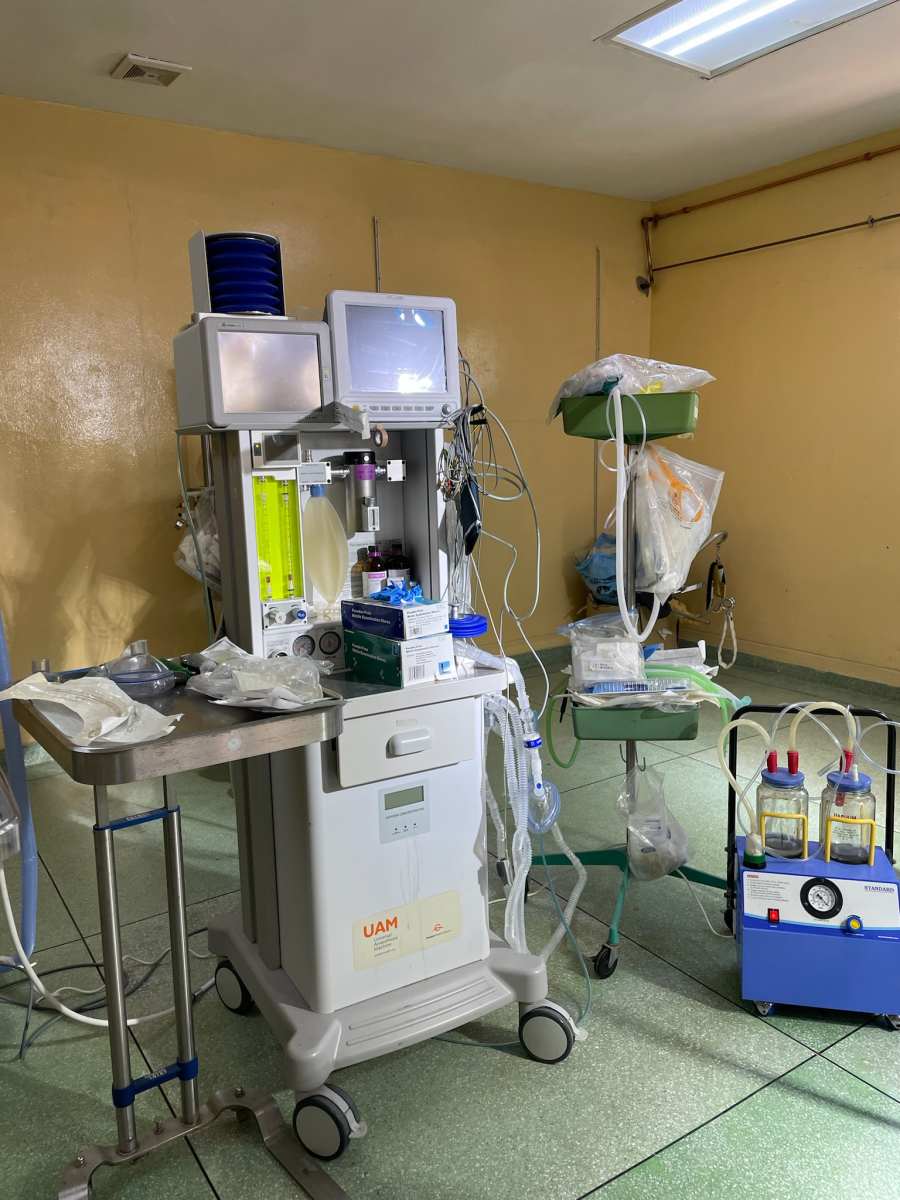
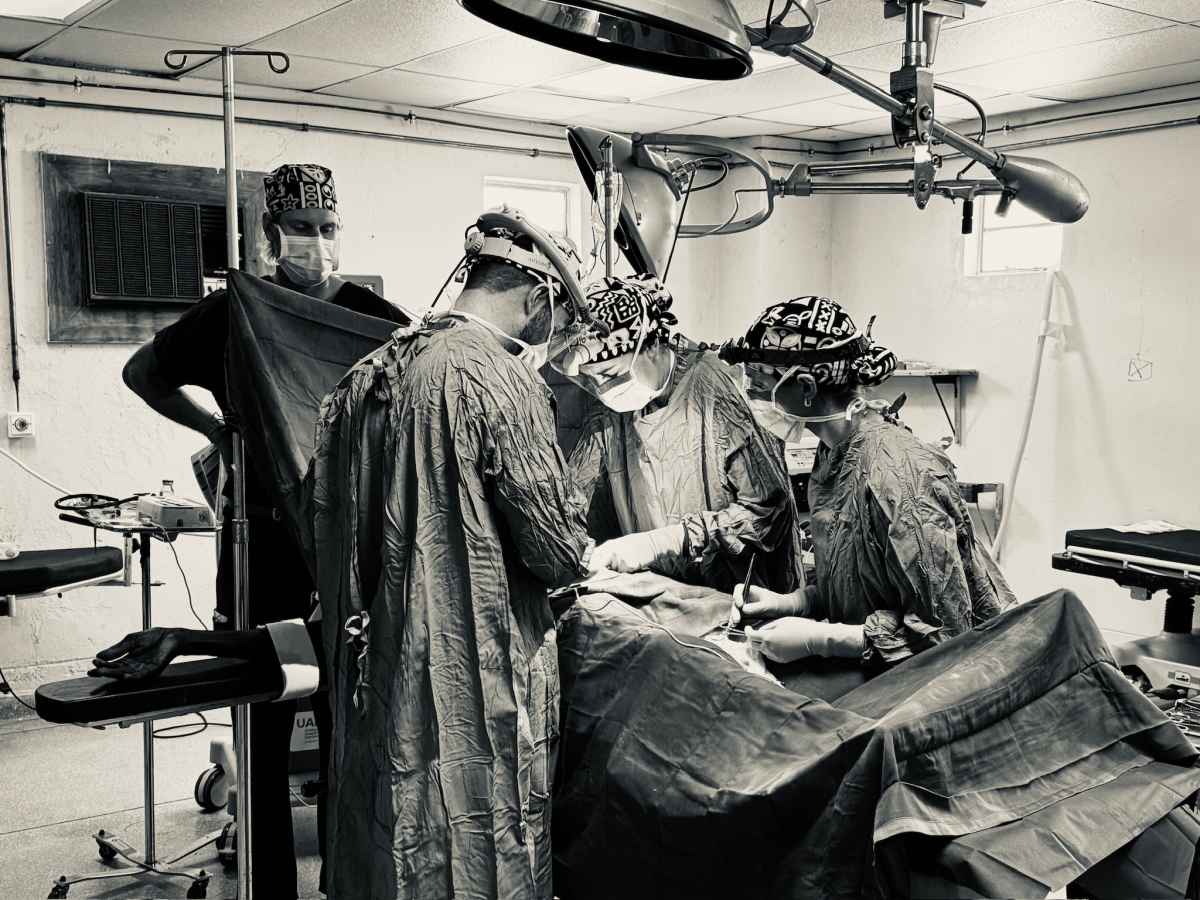
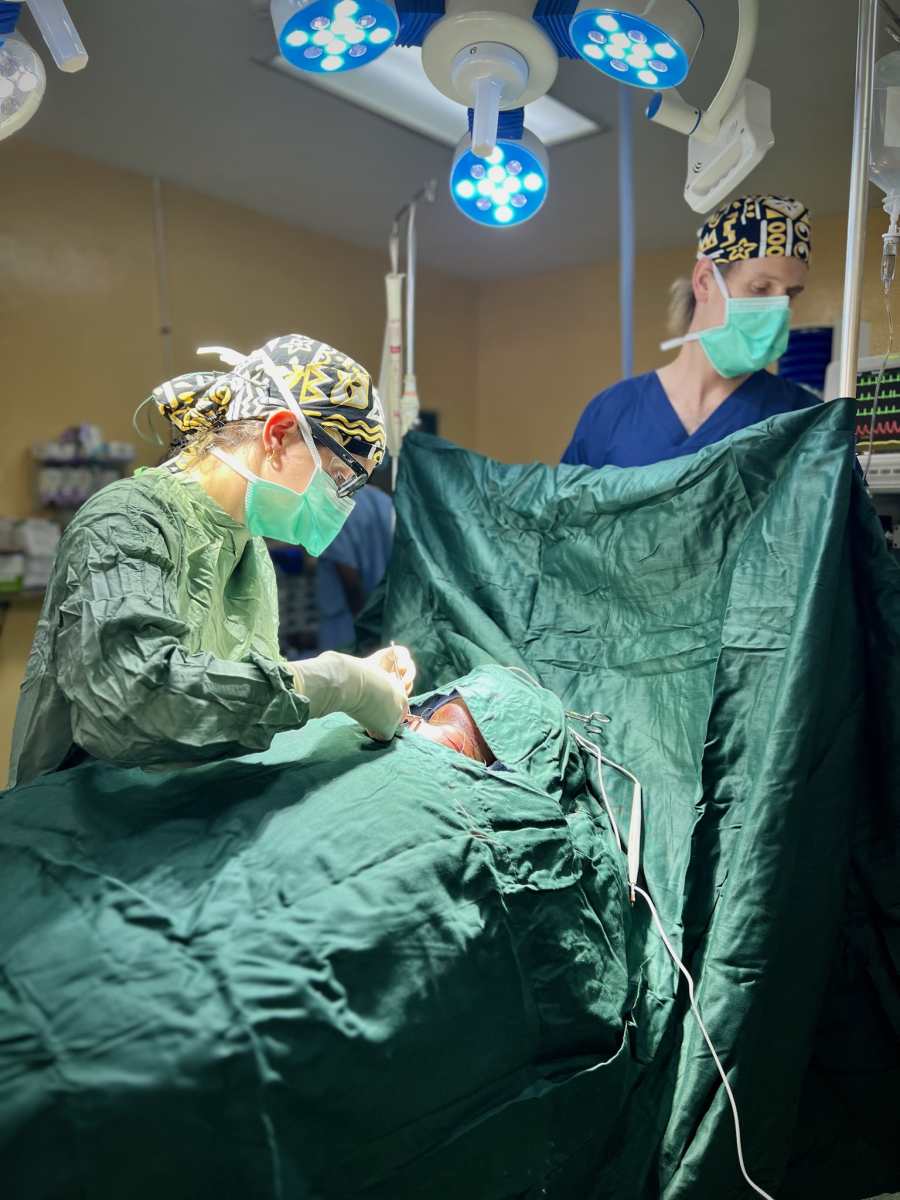

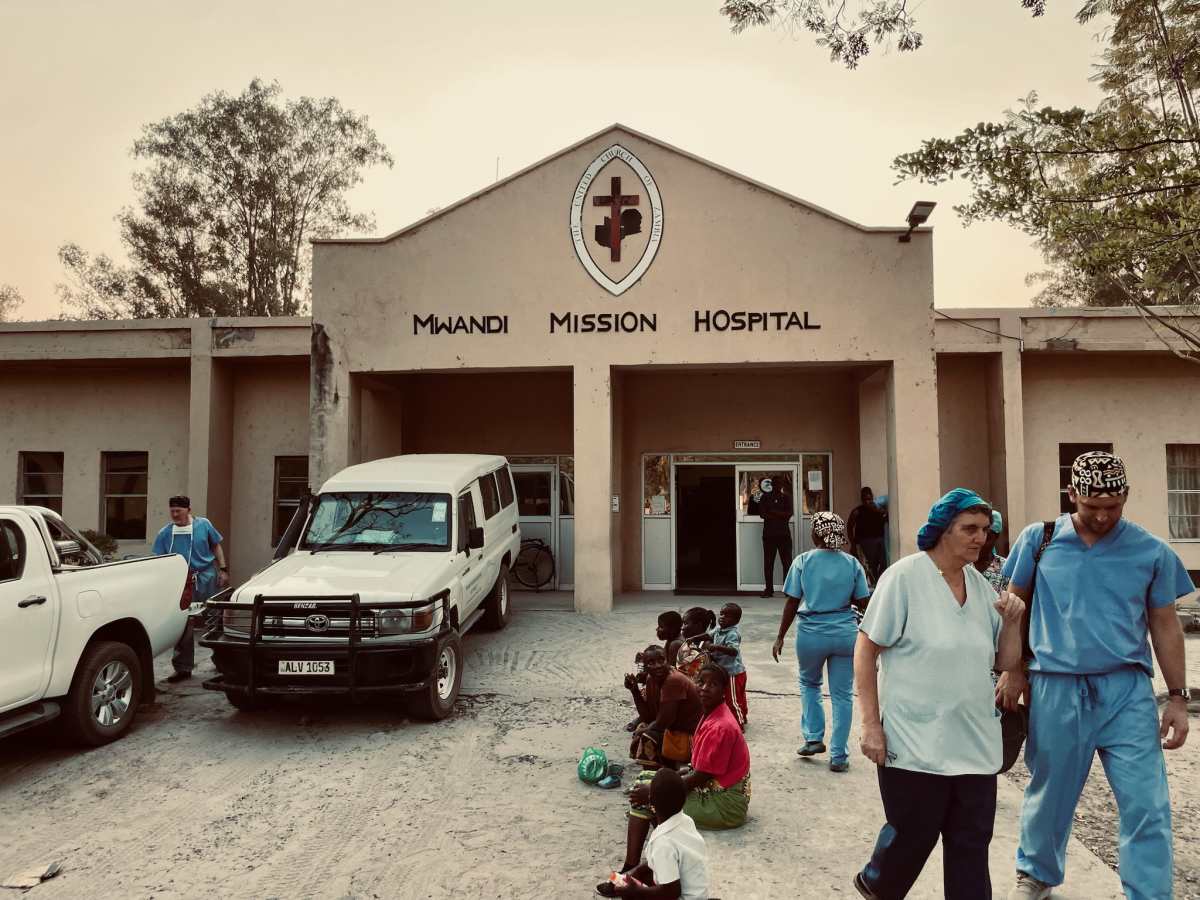






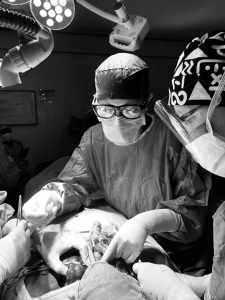
Mwandi is a small town in Western Zambia. It takes about 3.5 to 4.5 hours on an unpaved road to reach from Livingstone, depending on the tenacity of your driver. Just the state of the road you travel to reach this village shows you one of the many issues patients must face when attempting to get medical care- difficulty even getting to a hospital.
We were in Zambia in September during dry season and there was a large drought at the time. Most of the power in the city of Livingstone is hydroelectric so at night the power was shut off in the area where we stayed. We then made our way to Mwandi and when we arrived we stayed up late organizing all the supplies we had brought to determine who would need to use what supplies, and when. On our first full day there we held a clinic and saw over 120 patients, the majority of which needed surgery. We spent the night triaging and creating a list of when we would operate on each patient, trying to fit in as many people as possible, while also knowing that more would come in during the week that would need surgery.
There were difficult times; sometimes it was seeing a patient and knowing they needed medical management of a condition before you could offer them operative intervention. There were patients we saw that had spent a lot of time and money to travel to this hospital to be seen for “surgery” although it would unfortunately have been unsafe to offer an operation to them at the time. The disappointment was palpable and often difficult to handle knowing this patient may never get the surgical care that they need.
The patients we were able to operate on made it all worth it. Each morning after surgery we would go see our patients on the wards that were admitted overnight. These were often patients that had large goiters, often the size of a large orange or grapefruit. We would show them the thyroid specimen that we removed and take down the dressing on their neck. I saw the brightest smiles I have ever seen on those days. Some people cried with joy knowing they would no longer have the discomfort of a large goiter weighing on them both literally and figuratively.
There was a child who came to the hospital with an incarcerated umbilical hernia in the middle of the night. Luckily we were in Zambia when this happened. There is normally only a general practitioner at this hospital and they have capabilities to perform C-sections and another provider that perform circumcisions. Otherwise, their surgical capacity is limited. The child would have had to be taken by ambulance four hours down the incredibly bumpy road to Livingstone to reach the nearest hospital where he could have received an emergency operation. By that time the hernia could have become strangulated. It was cases like these where I felt incredibly thankful we were there.
I know that we helped many people on this trip but I am not sure I believe in altruism. I think I will be a better surgeon because I had this opportunity, but I gained even more as a human being. I am incredibly thankful I was given this opportunity.